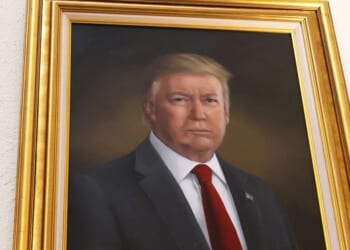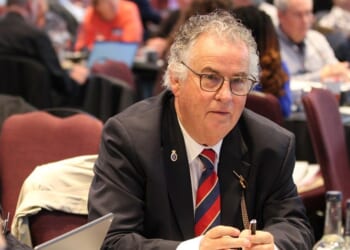THE self-criticism set out in an anti-racism statement published by UK development charities is ahistorical and risks demoralising supporters and empowering the sector’s critics, a former member of the Charity Commission Board has warned.
“There are plenty of people, politicians and whole political parties who think that charity should begin and end at home, and who wouldn’t give a button for global solidarity or human suffering overseas,” Dr Andrew Purkis wrote last month.
“Those forces have their tails up. . . They will be only too pleased to have this apparent public confirmation right from the top that international development, including the work of INGOs, always was a flawed endeavour with nothing much to celebrate.”
Dr Purkis, who served as public-affairs secretary to Archbishop Carey between 1991 and 2002, and chaired ActionAid UK, was responding to a statement issued on 29 July — one year since the summer riots in the UK in 2024 — by Bond, a UK network for organisations working in international development. It was signed by 43 charity CEOs, including those of CAFOD, Oxfam, and Christian Aid, and the interim CEO of Tearfund.
Entitled “A message of solidarity from members of the Bond CEO Anti-Racism Group to our peers across the sector”, it contained a detailed criticism of the sector: “We have misrepresented the lives of many people in poorer countries in our media, fundraising and campaigns. We have undervalued the knowledge and expertise that is abundant across low- and middle- income countries. We have too rarely asked what we, in the UK, can learn in return. We haven’t placed global solidarity at the centre of our work. . .
“As leaders, we must recognise our role in either perpetuating or challenging the unequal systems our organisations are part of. . . It means confronting how we engage with partners and communities, how we think about expertise, and whose voices count. It means indeed questioning our very existence.”
In his response, Dr Purkis wrote that he had “raised an eyebrow” on seeing the CEOs “questioning publicly the very existence of these organisations whilst also soliciting our continuing donations”.
Among his concerns was the apparent eliding of distinct issues. “Unequal power relationships may or may not have much to do with INGO [international non-governmental organisation] racism in particular,” he wrote. “We see the arrogance of powerful ‘expert’ developers, politicians, bureaucrats and their cronies in different economic systems all over the world. . . This is only sometimes anything to do with racism or colonialism.”
The statement also failed to acknowledge changes in the sector, in which “shifting power relationships” had “long been part of the advocacy and practice” of many charities. In many cases, he argued, “the main obstacles to effective empowerment of marginalised groups in developing countries” were not “the soiled mindset of INGOs” but “the entrenched attitudes and structures of intersectional discrimination in the independent developing countries themselves”.
“The statement assumes that INGOs are affected deeply if unconsciously by being the heirs of an imperial and colonial power, with its odious racial hierarchies, but there is no acknowledgement that they might also be the heirs of those who decried and demonstrated against racism and colonial power,” he wrote. “The CEOs find absolutely nothing to celebrate in the past record of their organisations.”
The charities’ own “great achievements” included both practical interventions such as “providing water and sanitation to impoverished and displaced people”, and their campaigning record. Oxfam and Christian Aid had been “very active, vocal leaders” in the campaign against apartheid in South Africa. “For decades, the agenda of campaigning by Oxfam, Christian Aid and many other signatories has clearly been a justice agenda based on explicit ideas of solidarity, breaking apart the restrictive definitions of charity imposed by the Charity Commission in the 1980s.”
The charities had taken “serious risks” in signing the statement, he warned, including “further demoralisation within the organisations and particularly their supporters, already under strain. A charity that seems to disown its own past, to the point of questioning its own very existence, is at risk of losing its mojo and alienating those who were under the impression that supporting them over many years was an act of global solidarity and a blow for global justice.”
Responding to Dr Purkis’s letter, the Bond signatories said that the statement was “never about repudiating our past. It was about harnessing it. . . By facing up to our history in full, we become more trusted partners, more relevant organisations and more effective actors for change.”
















